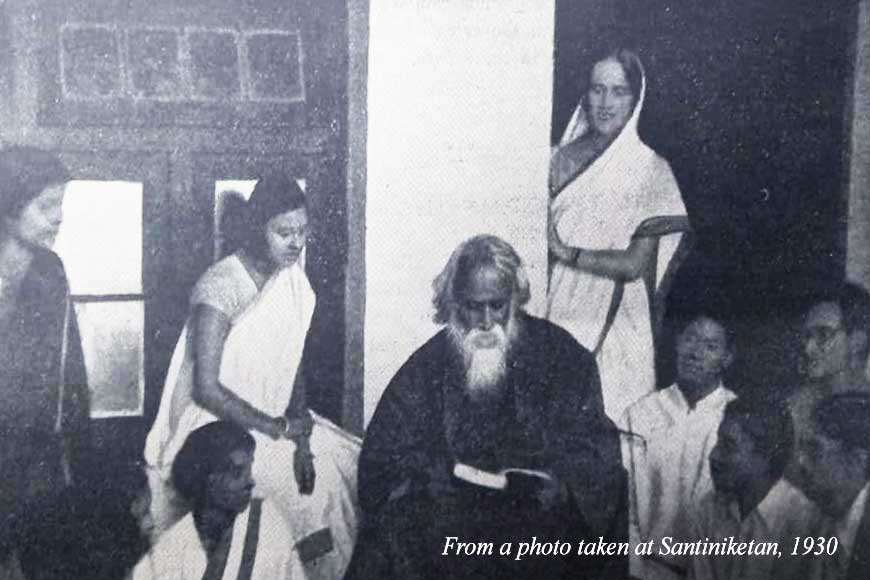Tagore the teacher, Tagore the humanist – GetBengal story

For those who have read Jibansmriti, the memoirs of his childhood by Rabindranath Tagore, it is easy to see why Tagore became the kind of teacher that he did. Homeschooled as a little boy, the youngster resented the hours spent under the harsh guidance of a tutor, and replicated his teacher’s behaviour whenever he role-played as children do, yelling at the balcony railings who were his ‘pupils’, and beating them with a cane.
Amusing as that may seem, the unpleasant memories of those times clearly shaped Tagore’s humanism and compassion as a teacher, which is fortunate. Not all traumas have positive outcomes, after all.
When he founded Visva-Bharati, Tagore couldn’t possibly have foreseen to what extent his dream institution would grow, leading to an inevitable decline in the values which drove him as the founder: independence of thought and speech, active communication, harmony between nature and humanity, a global vision, and room for all forms of creative expression.
Also read : Tagore, the Naturalist Forest
Also inevitably, Tagore’s philosophy as a teacher found wide expression in his works, and the references are easily available for those interested. Even in a poem like ‘Master Babu’, written for children from the point of view of a young boy whose kitten has been assigned the role of pupil, Tagore makes it a point to emphasise the teacher’s compassion (despite occasional exasperation) for an inattentive, mischievous student.
The upshot is that Tagore foresaw a holistic system of education profoundly grounded in an individual’s culture and environment, yet related to the broader world. He preferred a curriculum that fostered creativity, imagination, and morality above the mechanical, formal system of Western education which had taken root in India by the time Visva-Bharati came up in 1921.
His impatience with that system of education has been widely written about, leading many to believe that he was against Western education as a whole. But as he himself once wrote, “Let me clearly state that I have no distrust of any culture because of its foreign character. On the contrary, I believe that the shock of such extraneous forces is necessary for the vitality of our intellectual nature. What I object to is the artificial arrangement by which foreign education tends to occupy all the space of our national mind, and thus kills or hampers the great opportunity for the creation of a new thought-power by a new combination of truths.”
Tagore advocated the ‘activity method’ of education, believing it to be critical to the development of both mind and body. His focus was on practice rather than theory. Which was also the reason for his insistence on the outdoors as a child’s classroom, firm as he was in his belief that textbook education could never replace what we learn from the natural world. His abhorrence of the standard classroom setting is well documented, as is his unshakeable faith in Vedic philosophy.
In a nutshell, Tagore’s educational philosophy thus combined nationalist heritage, Western and Eastern philosophies, science, and a global perspective. The Visva-Bharati of today sadly reflects very little of that vision, but there’s always hope that someday, someone will revive it.
Source: Calcutta Municipal Corporation Gazette’s Tagore Memorial Special Supplement, published September 13, 1941










